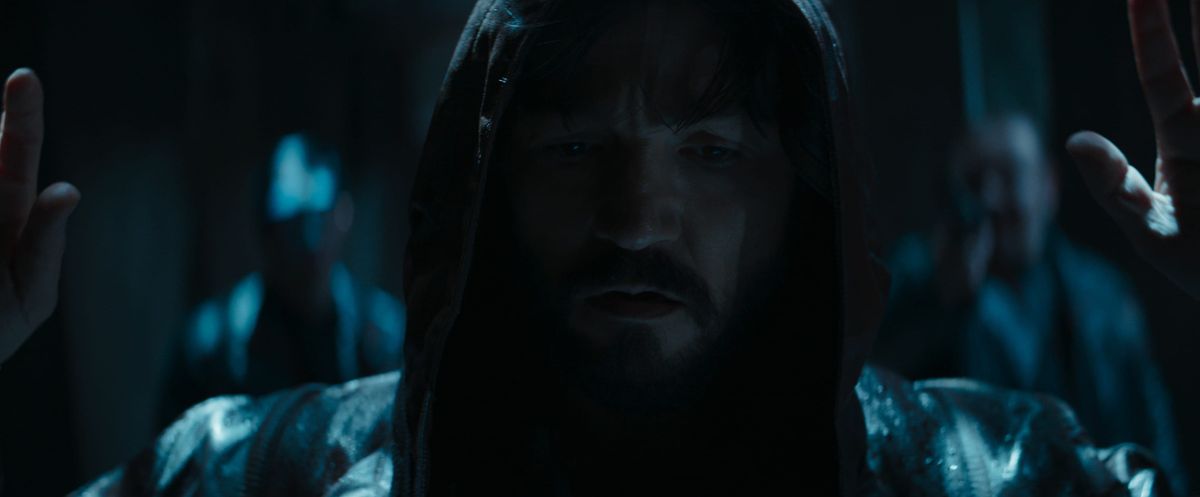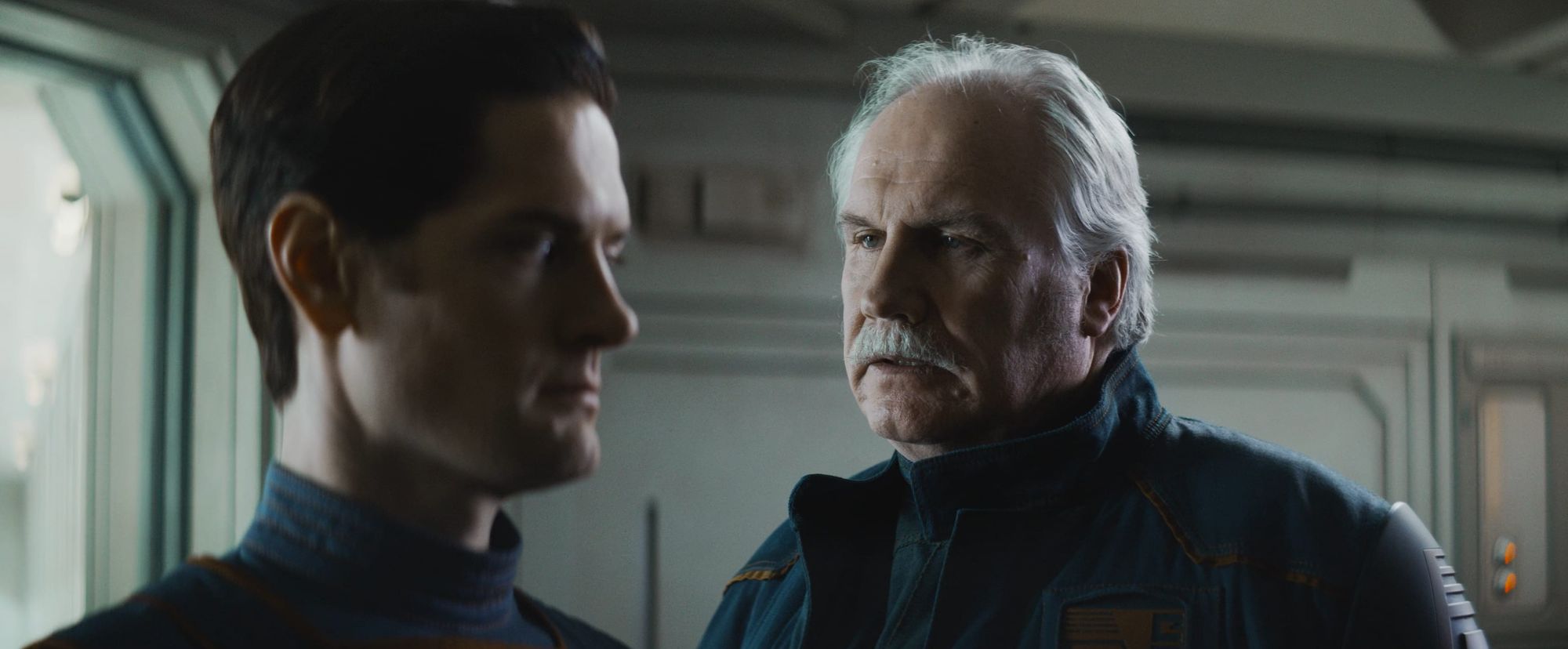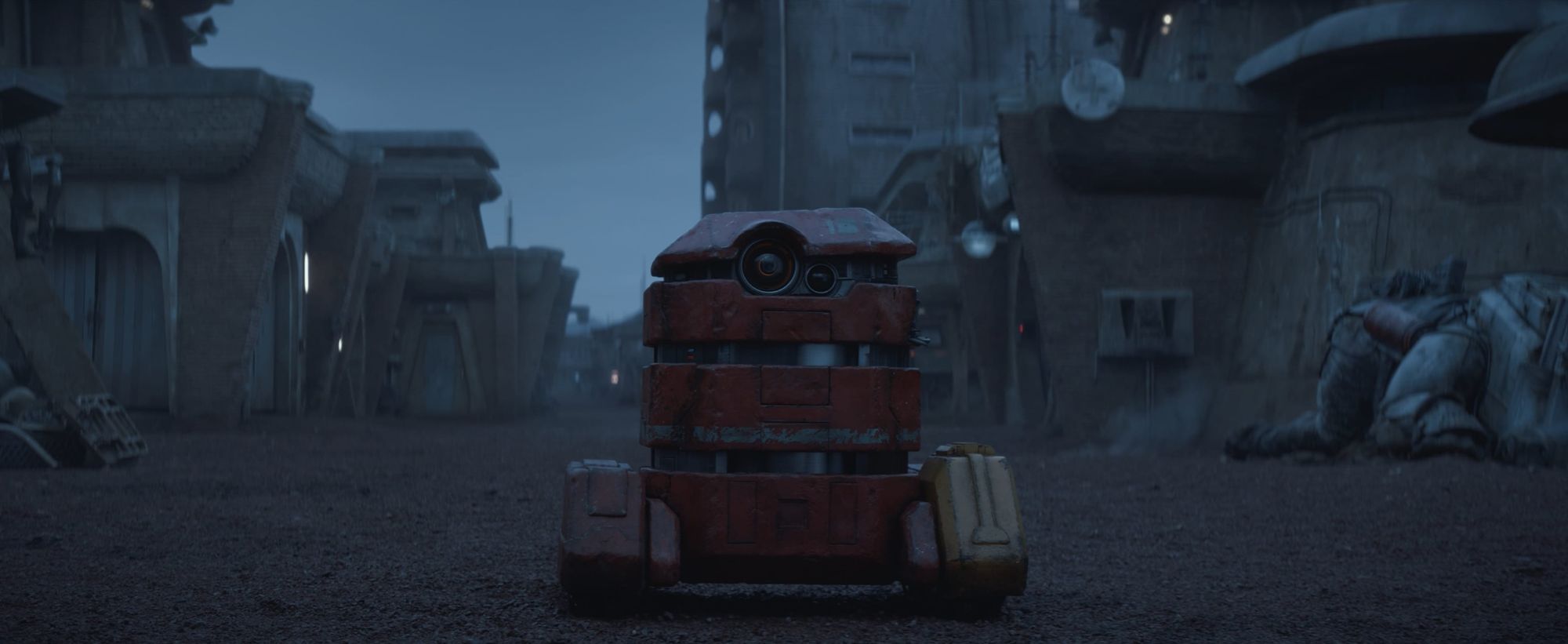Andor Fridays: Episode 1, "Kassa"
Our new recap series begins with the Star Wars version of a prestige TV pilot.

(This is the first installment of my biweekly recaps of Andor, the Disney+ Star Wars series that debuted in late 2022 to critical plaudits and (eventual) awards nominations. I've seen it one time, but I had a newborn at the time, so there's a lot of stuff I barely remember. This first recap is available to all subscribers, but future installments will only be available to paid subscribers. Want to become a paid subscriber? You're in luck! There's a sale on right now for 20 percent off an annual subscription.)
I am not a Star Wars person.
Oh, sure, I like some Star Wars things. I think it is difficult to grow up in the United States in the 1980s or later and not like some Star Wars things. I think The Empire Strikes Back is a wonderful movie, and I respect the ways the original Star Wars changed cinema without ever quite loving it. I think Chewbacca is neat. I enjoyed The Mandalorian when it was an A-Team riff. Tellingly, however, I lost my enthusiasm for that show the more it was directly "about" Star Wars.
Perhaps most famously, I walked out of a press screening of The Last Jedi a few days before it opened, and I felt like I was floating on a cloud. I loved it. I finally got what Star Wars fans saw in Star Wars, and I was so excited to share my enthusiasm with them. As you may be aware, things didn't work out that way.
So I like several Star Wars things, but Star Wars the media franchise? I can take or leave it. Indeed, at many points across my life, I have found both the franchise and its fans a little bit hard to take. It's just so sincere about stuff that can be so ridiculous, and the fans are so deep in the Sarlacc lore pit that they can't see their way out of it. (See? I know what a Sarlacc is! I am, after all, someone who grew up in the United States in the 1980s or later.)
What's more, I wouldn't say Rogue One is my least favorite Star Wars thing – generally speaking, I like it – but I have never quite gotten the love for it, much of which seems to be driven by its bleak tone and an ending where Darth Vader gets to be "badass," in a way that seemed to misunderstand a lot of what motivated George Lucas's Star Wars politically. To quote myself:
Star Wars as a franchise captures the aesthetics of fascism really, really well. Generally, Lucas and his collaborators intend that as a critique of how seductive those aesthetics are, but because his filmmaking largely presents the aesthetics of fascism in the way they were most effectively conveyed in the past, he accidentally ends up bolstering the opposite of what he's trying to say in terms of his visuals. If you're wondering why this seems to be the major franchise with the biggest problems with toxic fans at the moment, well, I might start with that central contradiction.
Thus, when Andor started getting "Is this the best show on TV?" buzz last fall, I had a healthy dose of skepticism. It was, after all, a Star Wars series based on a character from Rogue One I barely remembered. I loved Tony Gilroy's work and had seen Michael Clayton a bunch of times. Diego Luna has given a lot of performances I love. There was a cute lil robot.
And yet... a Star Wars show? About a Rogue One character? The best on TV? The 2022 version of me, with a thickly fogged-up baby brain, simply couldn't imagine it.
Yet Andor wound up being one of my favorite shows in recent memory, frequently stirring and beautiful but also propulsive and deeply moving. By the end of its first season, I was mainlining Nicholas Brittell's score on Spotify, writing impassioned Twitter threads in defense of Diego Luna, and recommending the show even to people who genuinely dislike Star Wars.
It took a while to get there. The first three episodes of Andor are good – and culminate in something pretty fantastic – but they definitely take their time getting going. Yet when rewatching "Kassa" to write about it, I was struck by how much more I liked the episode this time around. Some of that is because I now have a ton of affection for Cassian and Bix and B2EMO and so on. But some of it is also because my expectations are properly readjusted.
By and large, the Star Wars TV shows have fallen into one of two camps: live-action riffs on stuff that would have worked in the old Star Wars animated series (Mandalorian, the new Ahsoka) or what feel like padded-out versions of movie scripts that have been moldering in a drawer somewhere since the prequel trilogy ended (Obi-Wan, especially). At first blush, Andor seems like the latter, and when you come cold to "Kassa," thinking of it first and foremost as a Star Wars show, it's tempting to simply assume this is more of the same.
Coming to the show now, however, a new viewer would know it has been nominated for as many awards as it has and has taken on the veneer of being a Star Wars property for people who don't like Star Wars. (It also seems to have irritated exactly the most annoying Star Wars fans, in a way a non-Star Wars person might appreciate.) I wonder if this episode now plays more directly for those new viewers as what it is: a pilot for a prestige drama.
(Annoying pedantry: As Andor was given a direct-to-series order and as its structure involves pods of episodes from the same writer and director, it's a huge stretch to call this a "pilot" in any traditional sense but the most general one, which is "the first episode of a TV show." I hope my many pedant friends will forgive me this lapse.)
Here is a way I think about the first episodes of great TV dramas: They usually contain a scene or two that have very little to do with the plot but set the moral and thematic stakes for what's to come. Think of all the therapy scenes in The Sopranos pilot, Bullock stopping the lynching in Deadwood, Elliot ruining the life of a pedophile in Mr. Robot. None of these scenes have to do with the plot directly, but all of them underscore the ideas that the show will explore across its run. Even if a show starts a little slow, I will forgive it a lot if its pilot contains a scene where it becomes clear the creators have larger artistic goals in mind than simply following the plot where it takes them. (I kept watching Halt and Catch Fire, thanks to the "thing that gets us to the thing" scene in the pilot, for instance.)
In its pilot, Andor features two scenes of people negotiating life and death. One is quite direct, as Cassian confronts a guard who begs for his life in a rainy street. The other is more abstracted, as bureaucrats discuss whether to pursue the guard's murderer. In both cases, people's lives hang in the balance, and in both cases, someone argues that leaving well enough alone is what's best. But for someone who is desperate enough (Cassian) or someone who is a true believer (Syril), "leaving well enough alone" is never a possibility.

Star Wars has always been suffused with politics. Lucas first dreamed it up as a kind of funhouse mirror vision of the Vietnam War, but from the moment it was first released, Americans have been unable to resist seeing ourselves in the plucky Rebellion, rather than the all-consuming Empire. (This desire is not America-specific. It's very human to see yourself in the good guys.) When Star Wars turns more overtly political is when it leans into this tension and explores forthrightly the mental strain of living under fascist rule. It is not a franchise built to comment directly on the present, except for all of the ways that it is always commenting on the present, because somebody somewhere is always living under some form of totalitarianism, even if only within their own household.
"Kassa" takes this idea inherent to Star Wars and pushes it to its logical extreme. One thing that keeps people sufficiently cowed to not stand up against fascism is the fear that your whole life might be ruined simply from being in the wrong place at the wrong time, as Cassian's almost is in the first few scenes. Yet wed fascism to a sufficient bureaucratic state, and every place is the wrong place, and every time is the wrong time. If you cannot ever truly escape the oppressive society you live within, then there are only two options: Keep your head down, or fight back. Cassian has spent much of his life doing the former; as Andor begins, he's pushed toward the latter, via an almost random encounter.
What's fascinating about this dialectic to me is that it necessarily posits that "fighting for what you believe in" is not a value-neutral ideal if what you believe in is evil. The Empire that Syril longs so desperately to impress is an oppressive, totalitarian state, but it's the oppressive, totalitarian state he knows. As such, he can't imagine doing anything other than trying to climb its equivalent of the corporate ladder. Meanwhile, Cassian's sins stem from his pure desire to survive, so that he might eventually be reunited with his sister. It is so, so easy to imagine flipping this story so that Syril is the troubled hero and Cassian the tragic villain with an understandable motivation. Indeed, it would take the form of most good, empathetic American cop shows.
Yet because we know that Cassian turns into the guy from Rogue One – even if we've never seen that movie – we also know the show has flipped its moral compass in a way that might seem unlikely. Here, the mere fact that this is a Star Wars show is helpful. We know that Star Wars is about a plucky band of revolutionaries overthrowing the government. So even though one of the first things we see Cassian do onscreen is commit murder, we're predisposed to think, "Hey, those guys had it coming."
But did they? We don't really get to know them. If every life has some sort of meaning, then, yeah, what Cassian did was monstrous. But if every life has some sort of meaning, Cassian wouldn't live amid a totalitarian regime that has reduced many of its subjects to people simply trying to get by and live a life that escapes any sort of attention. And is that really a life? From the small amount of time we spend among Cassian's friends on Ferrix (more on them in the next two recaps), it would seem that for many, the Empire keeps horizons too small.
The negotiation of one's life or death – and whether one's life can be meaningful within a totalitarian system without fighting back – is present in every episode of the show, and if I stretch the definition to its furthest, it's present in nearly every scene. For as much as the business of this pilot centers on Cassian being able to cover up his crime – and he's surprisingly deft at it – its two most important scenes are the encounter on the street and the clean, bureaucratic decision making in an office somewhere. Both scenes contain lives in the balance, no matter how much they might be abstracted away. Yet in the view of Andor (and maybe Andor) there's a purity to direct violence that abstracted death makes grotesque. To murder is always wrong, but to pretend you're not murdering, to not truly understand the forces that you work at the behest of and treat them glibly, is a worse sin. As we move forward, Andor will explore every nook and cranny of that idea.

Programming notes:
- Someone asked in the Discord if these are going to be spoiler-free, and I would say what's above is a pretty good idea of what to expect. Just because of my critical approach to television, I'm always looking ahead, and most of the observations in this review about the overall thematic thrust of the series were made after I watched the pilot the first time, with little knowledge of what was to come. As I tend more toward essays than straight recaps, I'm always going to be looking beyond the episode I'm immediately watching. I'm happy to hear what you think about this approach in comments, though!
- I have struggled to know how to approach the "TV criticism???" part of my job since I got a job actually, uh, writing for television, and I decided Andor was a good test case. It's a show I love, but also a show I very much cannot work on (as its second and final season was filming when the SAG strike shut it down). As such, I can talk about it. That said, if you are looking for someone to lay into Andor, you're in the wrong place. I want Diego Luna to like me! (That goes beyond the idea that I might work with him someday. I just think he seems like he'd be a good pal!)
- Also: If the WGA Strike is resolved, I will be going back to work! Andor is structured in such a way that I can, in theory, cover more than a single episode in each go, but it's also a dense show that rewards single-episode recaps. If I'm back to work, I'll let you know if my plans shift, but for now, I'm planning to recap one episode every other week, concluding in either late February or early March (depending on if I take the week between Christmas and New Year's off). (I can already hear my wife asking me to please take the week between Christmas and New Year's off.) (We'll be ending in early March.)
Other thoughts I thought:
- The bookend scenes of this episode are interesting. In the first scene of the episode, Cassian goes to a club on Morlana One seeking his sister. In the last, he rides away from her on their home planet of Kenari in a flashback sequence. Her absence hangs heavily over the rest of the episode, even though we've only gotten to see her in a couple of flashback scenes.
- God, the choice director Toby Hughes makes to film the guards accosting Cassian on the street entirely in a closeup on Luna's face while the other actors slowly come into the frame over his shoulders, out of focus, is so brilliant.
- Bix isn't the only girl in the show, but she's the main girl of note in this episode, and I remember being very excited that among Cassian's friends was a pretty rebellion lady with whom he has a History. And she does spy stuff and general skullduggery! I love Bix, and if you don't, you're wrong.
- I also love Brasso, Cassian's friend who covers for him not just by going along with his "I was over at your place for drinks" lie but by embellishing it in a way that makes Brasso look cool and Cassian look like an ass. I love a good yes-and.
- Speaking of characters I love, that B2EMO is a fine and dapper fellow!
- The one thing that hit me most on this episode as a rewatch is just how much of the show's cast the episode keeps in its back pocket. This is a deliberately paced series, with a lot of delights to come.
- This episode is but 41 minutes long – and that's with credits. In general, Andor is terrific at pacing out its episodes and never putting anything that's just too long out there.
- Just so you know, I am absolutely going to spell at least one planet or character name wrong at some point in this recap series. I try to check everything I can, but c'mon. This is Star Wars.
On October 6: We check out the show's shortest episode and meet THE TIME GRAPPLER in "That Would Be Me."
Remember! If you want to read that installment, you'll have to be a paid subscriber! Here's another button for the ongoing sale!



